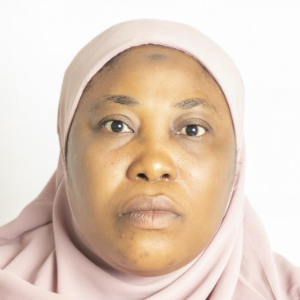Title : Epidemiological situation of 2023 dengue fever outbreaks in ECOWAS region: Implications for strengthening preparedness and response
Abstract:
Introduction: The Economic Community of West African States (ECOWAS) experienced a significant surge in Dengue Fever (DF) outbreaks in 2023, posing new important challenges to public health systems. This paper reviewed the epidemiological situation during the outbreaks and highlighted these challenges and key implications for strengthening preparedness and response strategies in the ECOWAS region.
Methods: We characterized DF outbreaks in ECOWAS from January to December 2023 using multiple methods comprising an extensive desk review of available literature on dengue in the region, the analysis of a self-administered questionnaire by key informants in the Member States to obtain the current epidemiologic situation, response, and control efforts), and the organizing a two-day regional stakeholder meeting.
Results: As of epidemiological week 52, ten (66%) of the 15 Member States reported a total of 164,406 suspected cases, including 72,799 confirmed and probable cases and 748 deaths (case fatality rate: 1.0 %) from Benin, Burkina Faso, Cabo Verde, Côte d’Ivoire, Ghana, Guinea, Mali, Senegal, Nigeria, and Togo. Burkina Faso accounted for 98% of the confirmed and probable cases (71,299) and 95% of fatalities. The highest case fatality rate of 33.3% was reported from Benin. Females (56.8%) and the age group 20-49 years (47.5%) constituted the highest number of cases, and the main circulating viral strains were DENV3 and 1.
Member States faced various health system, environmental, epidemiological, and political challenges with the response to the outbreaks such as limited access to diagnostics, limited public awareness, weak health system, sub-optimal vector and entomology control, and lack of cross-border collaboration.
Conclusion: Our findings call for improved surveillance, strengthened vector control measures, and fostering regional cooperation towards better data quality, updated risk maps, laboratory diagnosis, research, and cross-border collaboration.
Audience Take Away:
- The extent and severity of the Dengue Fever (DF) outbreaks in the Economic Community of West African States (ECOWAS) in 2023.
- The methodology used to characterize the outbreaks, including literature review, key informant questionnaires, and regional stakeholder meetings.
- Epidemiological data from the outbreaks, including the number of suspected and confirmed cases, fatalities, and demographics of affected populations.
- The distribution of cases across ECOWAS Member States and the disparities in cases and fatalities.
- The challenges faced by Member States in responding to the outbreaks, including limitations in diagnostics, public awareness, health system capacity, vector control, and cross-border collaboration.
- The identification of key priorities for strengthening preparedness and response strategies in the ECOWAS region, including improved surveillance, vector control measures, regional cooperation, data quality, risk mapping, laboratory diagnosis, and research.



